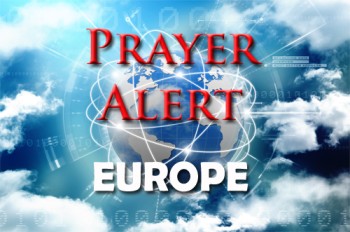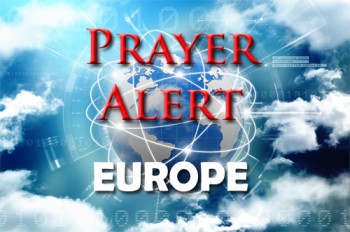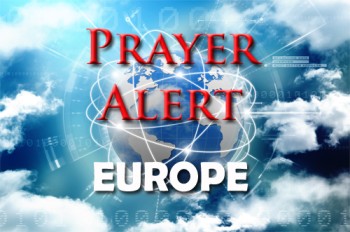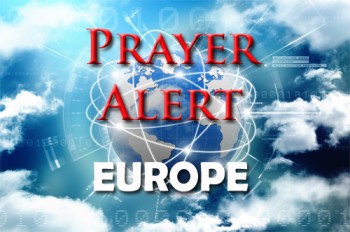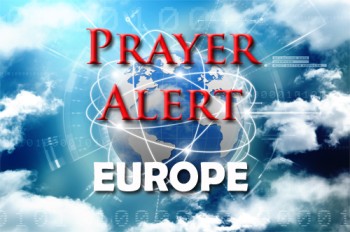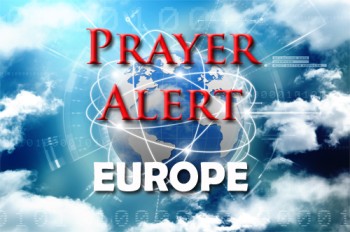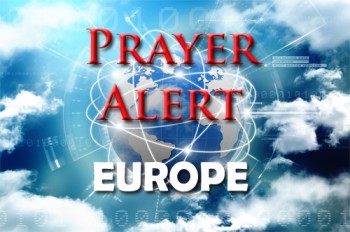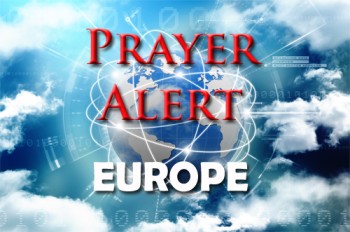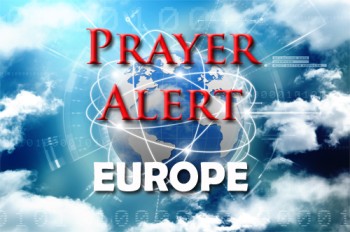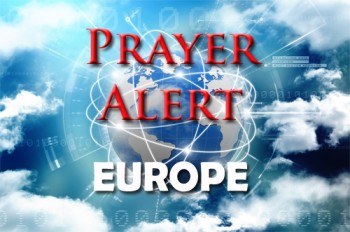Displaying items by tag: Spain
Spain / Portugal / Morocco: severe storms contrast with extreme cold in north and east Europe
Severe storms across southern Europe and north-west Africa have forced mass evacuations and widespread emergency responses. Storm Leonardo brought intense flooding to Spain, Portugal and Morocco, with rivers reaching record levels and transport disrupted. In parts of southern Spain thousands fled homes, while northern Morocco evacuated over 140,000 residents as dams filled and rainfall continued. Mountain areas recorded extraordinary totals in little more than a day. A second system, Storm Marta, though less intense, added further rain, strong winds and coastal waves. This contrasts sharply with northern and eastern Europe, where persistent high pressure caused extreme cold and record low temperatures. Meteorologists say the unusual pattern has lasted weeks, steering storms south while trapping cold air elsewhere. Although the rainfall has eased drought conditions in Morocco, communities now face recovery, displacement and rebuilding after damage and loss. Update: Portugal’s interior minister has resigned after criticism of her handling of the storms. See
Spain: at least forty dead after high-speed train crash
Spain has entered a period of deep national grief following its deadliest rail disaster in more than a decade. A high-speed collision near Adamuz in southern Andalusia claimed at least 41 lives, with fears that the toll could still rise as recovery work continues. Two trains derailed on 18 January after one strayed into the path of another, and investigators are carefully examining the scene, focusing on a carriage believed to have derailed first. The transport minister said that experts were extremely surprised because it happened on a flat stretch of track which had been renovated in May. Mechanical failure is being considered; sabotage, human error, and excessive speed have been ruled out. Local residents were among the first to help the injured, facing scenes of profound trauma. As families wait anxiously for news and many remain in hospital, the country is observing days of mourning, united in sorrow and still searching for answers.
Spain / France: ‘game-changer for women’s health’
A groundbreaking approach to diagnosing endometriosis offers potential to revolutionise research and treatment of the disease. Affecting one in ten women, endometriosis often goes undiagnosed for years. Traditionally, diagnosis involves invasive procedures like laparoscopy. However, scientists in Spain and France have developed a method of analysing blood-derived stem cells (MenSCs) directly from menstrual samples. This preserves the cells' molecular integrity, allowing researchers to study endometriosis more accurately. By using a technique common in cancer diagnosis, researchers achieved an 81% accuracy rate in distinguishing endometriosis patients from healthy individuals. This non-invasive method, developed by endogene.bio and collaborators, could reduce diagnosis time from years to weeks. The study has gained attention from the pharmaceutical industry, as potentially it could transform endometriosis management and patient care. The co-founder of endogene.bio says: ‘This world-first approach to endometriosis research and diagnosis is truly game-changing for women’s health.’
Spain: trauma and anger continue, one year after Valencia floods
In October 2024, devastating floods swept through Spain’s Valencia region, leaving 229 people dead and countless others traumatised. Among the victims were Miguel and Sara, a father and daughter who perished together while trying to save their car from rising waters. For their widow and mother, Toñi García, the pain remains raw – just one example of the human cost behind the natural disaster known as the Dana. One year later, Valencia continues to rebuild both its cities and its spirit. Memorials honour those lost, while reconstruction and new safety protocols aim to prevent a recurrence. Yet grief and trauma linger, especially among children who now fear the rain which once brought destruction, and anger at the handling of the Dana on the day it struck refuses to fade. As towns like Paiporta rise from the ruins, residents are striving for resilience and renewal.
Spain: a different approach to Africa and to migrants
In contrast to many Western nations, Spain is charting an independent path on migration and relations with Africa. While the USA, UK, France, and Germany are reducing development aid, prime minister Pedro Sánchez is deepening his country’s engagement with Africa through investment, diplomacy, and dialogue. The socialist-led government’s strategy emphasises shared prosperity, education, and sustainable growth, reflecting Madrid’s belief that Europe and Africa ‘form part of the same geopolitical space’. Alongside this vision, Spain continues to experience migration pressures, with 45,000 crossing from Africa to Spain or the Canary Islands in 2024. Yet unlike many European leaders, Sánchez acknowledges migrants’ contributions and backs ‘safe, orderly, and regular’ mobility schemes such as ‘circular migration agreements’ which give West Africans short-term visas to come to Spain for limited periods of seasonal work, mainly in agriculture, and then return. By coupling realism with empathy, Sánchez is seeking to balance security with solidarity, presenting a model of cooperation rooted in dignity, opportunity, and mutual benefit.
Europe: severe heatwave, record temperatures, wildfires
A severe early-summer heatwave is scorching much of Europe, triggering wildfires, evacuations, and health alerts across multiple countries. In Turkey, over 50,000 people have been evacuated due to wildfires, especially near Izmir. France has faced peak temperatures of 40°C, with wildfires prompting evacuations. Spain is on track for its hottest June ever, with Seville reaching 42°C. Italy issued red heat alerts for 16 cities and may restrict working outdoors. Germany is also issuing warnings, urging water conservation while facing disrupted river shipping because the water level of the Rhine has dropped. UN secretary-general António Guterres has commented, ‘Extreme heat is no longer a rare event – it has become the new normal.’ Heatwaves are already the world’s deadliest weather hazard, killing nearly half a million people annually, surpassing the toll from floods, hurricanes, and earthquakes combined.
Spain / Portugal: cause of massive power cut still not known
A widespread power cut on 28 April disrupted millions across Spain and Portugal, prompting investigations and huge public concern. Portugal’s national grid operator, REN, attributed the blackout to a rare atmospheric phenomenon which caused extreme temperature shifts, leading to unusual oscillations in electrical lines. This explanation contrasts with speculation in Spain about a possible cyber attack, which their national security agency is still investigating. There is still no clear explanation of the disruption. It brought significant consequences: public transport stopped, mobile networks failed, and contactless payment systems were disabled. Panic buying swept through supermarkets, echoing scenes from the Covid pandemic. Three deaths have also been recorded in Spain. REN said recovery could take up to a week, though prime minister Luis Montenegro predicted that it would be quicker.
Spain: new emphasis on caring for geriatric animals
At Barcelona Zoo, African elephants Susi (52) and Bully (40), and other older animals at the zoo, including a 15-year-old wolf and two 17-year-old big cats, are receiving specialised geriatric care designed to support their health and dignity in old age. These animals, many of whom cannot return to the wild, are cared for with treatments like arthritis support, nutritional supplements, mental health monitoring, and enriched habitats. This shift of emphasis reflects a broader transformation in the role of zoos: from spectacle to sanctuaries focused on conservation, education, and lifelong animal welfare. Following the death of their long-time companion Yoyo, (54), Susi and Bully initially stopped eating but have since formed a closer bond. The zoo is now working with the University of Barcelona to study these reactions, hoping to deepen their understanding of animal grief.
Spain: mud thrown at king, fury directed at politicians
Following Spain’s deadliest natural disaster in recent memory, a visit by King Felipe VI and Queen Letizia to Valencia became the target of public outrage, with protesters hurling mud at them. The recent devastating floods claimed at least 217 lives, with the toll expected to rise. When the royal couple appeared, alongside Prime Minister Pedro Sánchez and other leaders, many locals expressed their fury at what they saw as inadequate warnings and slow government response. Protesters shouted ‘Murderers!’ and ‘Get out!’ at officials, blaming them for the disaster’s aftermath, and there were several clashes with police. Queen Letizia burst into tears after speaking to several grieving people. One commentator noted that the crowd's anger was directed at the politicians, not the royal family. Public resentment over the government's handling of the floods has intensified. One week after the floods struck, many people still did not have drinking water.
Spain: at least 95 dead after flash floods
At least 95 people have lost their lives in south-eastern Spain after relentless rains triggered flash floods. In one town an unprecedented year’s worth of rainfall (491 mm) occurred within just eight hours. Floodwaters wrought havoc across the region, toppling bridges, sweeping cars through streets, and leaving many people clinging to trees to survive. Over a thousand troops have been dispatched for rescue operations as numerous individuals remain trapped or unaccounted for. King Felipe VI expressed deep condolences, while emergency services, overwhelmed by the crisis, have struggled to respond to hundreds of distress calls. Questions have arisen over poor forecasting and delayed flood warnings, which some believed left them vulnerable on roads and low-lying homes: see https://www.bbc.com/news/articles/cwyx75ppr79 Flights, trains, and schools have been suspended. Of many contributory factors, a warming atmosphere caused by climate change makes extreme rainfall more likely. Temperatures will keep rising unless governments around the world make steep cuts to emissions: see also the World article on the UN and climate change.
